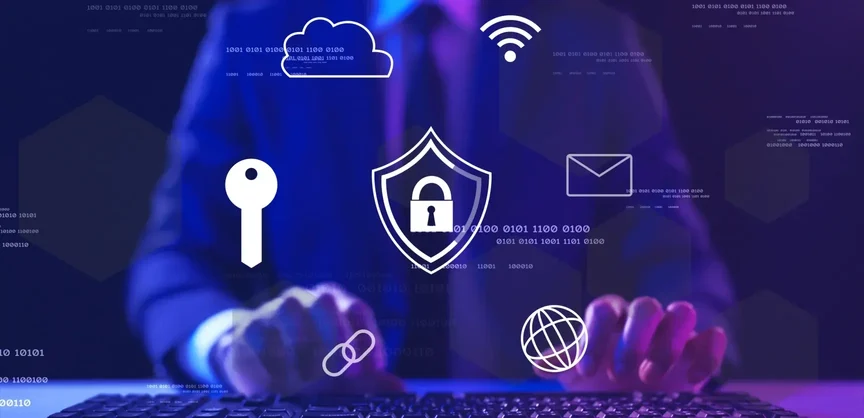A VPN (Virtual Private Network) needs no introduction in today’s digitally connected world. It creates an encrypted tunnel between our device and a secured server, allowing us a secure browsing experience. Furthermore, a VPN also alters our device’s IP address and assigns it a fake one so cybercriminals cannot recognize it.
Most people like me use it to overcome the geo-restrictions to watch their favorite shows, while some use it to protect their devices and the data stored on them. But sometimes, VPNs malfunction and we’re unable to reap its benefits.
In such situations, it becomes difficult for non-technical people like me to identify and solve the root problem. However, after extensive research, I’ve collected a few tips about VPN troubleshooting. So, if your VPN ever acts up without warning, you’ll know how to troubleshoot it without worry.
Slow Servers
Sometimes, our devices don’t connect to a VPN because its servers are overloaded with users. Generally, it happens when we’re using a free VPN.
Free VPNs often have a few servers, and when a high number of users connect to these servers, the provider may fail to cater to new users. Hence, our devices fail to establish a connection with the server and only connect to them when there’s free space.
Troubleshooting Tip
I believe the sure-shot way to resolve this issue is to subscribe to a paid VPN as you’d get multiple high-speed servers with advanced encryptions. However, if you don’t want to opt for a paid VPN, try switching to different servers on a free VPN.
Also, bear in mind that while this tip can help you get connected to a VPN server, it may not be your preferred one.
Slow Internet Speeds
To understand this, let me explain how a VPN works. I’ve already mentioned that a VPN creates an encrypted tunnel between our device and its secure server. Once that connection is established, all incoming and outgoing data passes through the encrypted server first. Then, it heads to its destination, and for this extra distance our data covers, it may require more bandwidth.
Resultantly, the VPN may not connect at all, if it does not get the required bandwidth to pass our data through its encrypted tunnel.
Troubleshooting Tip
The best way to resolve this issue is to have ample bandwidth for VPN so it connects to your device efficiently. One way is to disconnect idle devices when you connect to the VPN. However, it may be troubling to free up bandwidth every time you want to use it.
That being said, I believe switching to a high-speed plan is a better and hassle-free option.
I also upgraded to a high-speed plan with the help of Mediacom customer service, my ISP’s customer support channel. Since then, my devices have always seamlessly connected to a VPN, without even disconnecting the idle ones.
Firewall Blocking
Like a VPN, a firewall also protects our devices from malware and viruses. But sometimes, using them simultaneously can create problems for VPNs. Technically, a firewall actively monitors our device’s traffic to scan the threats.
A VPN alters our device’s IP address, which is why a firewall may disable it. It may think of VPN as a threat trying to access the IP address, and hence, disable our device’s connection with a VPN.
Troubleshooting Tip
Firstly, ensure that it is the firewall that is actually blocking your device’s access to a VPN. To do so, disable the firewall and try to connect to a VPN. If that’s the case, your device should seamlessly connect to it.
That being said, I won’t recommend disabling your device’s firewall, as it helps secure your device. So, I suggest adding your VPN as an exception for the firewall. For this, you can explore your device’s firewall settings so it won’t consider VPN as a threat.
Software Glitches
Has it ever happened to you that even on a fast internet connection, the VPN keeps disconnecting again and again? If you’re nodding your head right now, then there may be a software glitch in your VPN.
A VPN is just like another app on your smartphone. As bugs can affect your apps’ performance, they can attack a VPN too, and make it lag or crash. As a result, the VPN may disconnect frequently or not connect at all.
Troubleshooting Tip
VPNs are just like other apps on your smartphone. Hence, they may receive vital updates like security patches, new features, or bug fixes frequently. So, I’d suggest updating the app as it should fix the software glitches that make it inefficient.
However, reinstall the VPN app if there are no updates available. This step will remove the existing VPN cache stored on your device.
Frequently Asked Questions (FAQs)
What are some of the best VPNs?
NordVPN, Surfshark, and ProtonVPN are some of the best VPNs that use advanced encryptions and security protocols.
Can I leave the VPN on after using it?
Yes, you can leave the VPN on after using it. This way, the established connection between your device and the VPN’s server will be maintained even when the device is idle.
Are free VPNs as good as paid ones?
No, free VPNs usually have fewer servers and may use obsolete encryptions. However, paid VPNs offer numerous servers and advanced security measures to secure our data.






